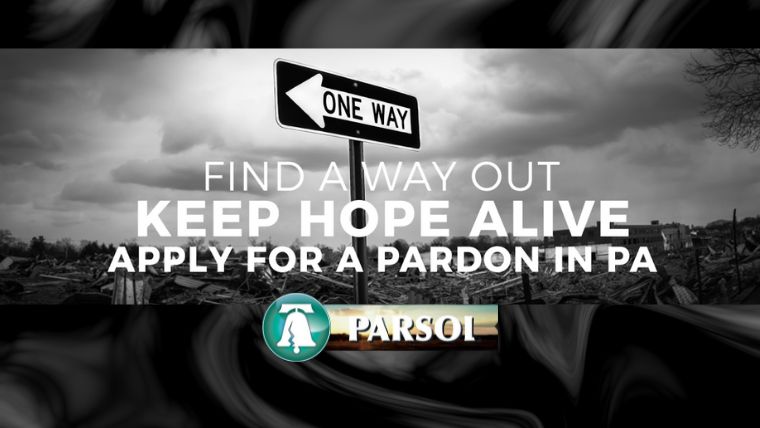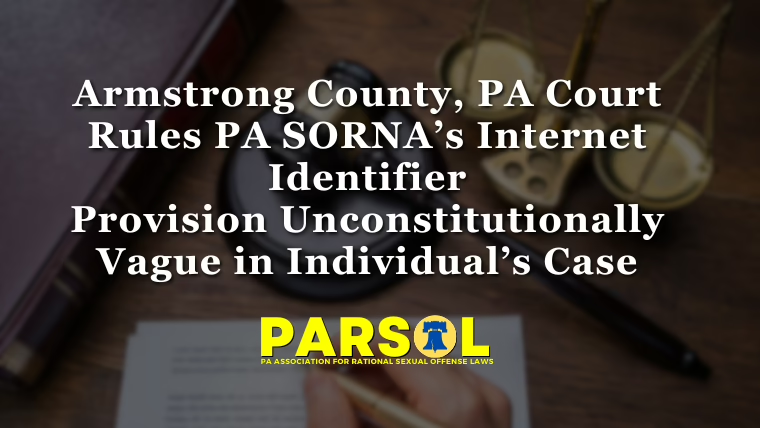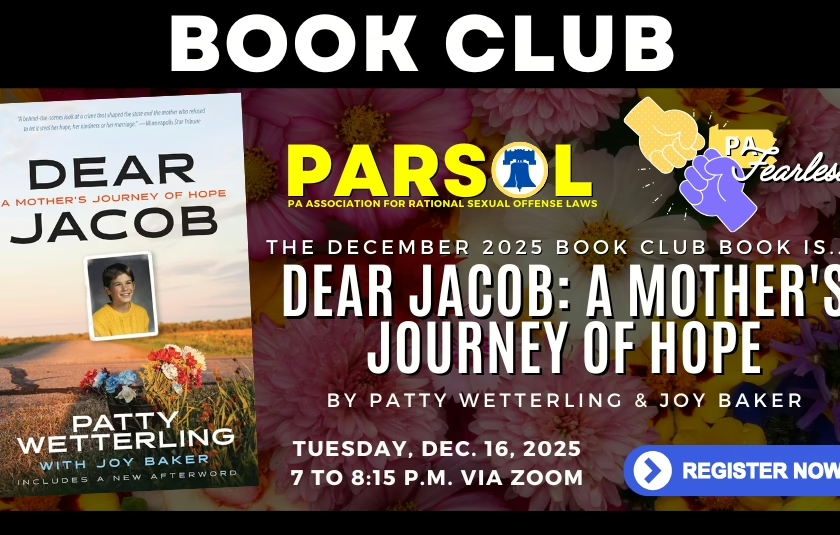Today, the Pennsylvania Board of Pardons has over 2,400 applications it is processing thanks to the efforts of the Philadelphia Lawyers for Social Equity’s state-wide initiative, the “Pardon Project,” and others like it. Before these efforts were made, the board only handled around 400 +/- a year. Even with those lower numbers, the recent administration still had pardons sitting on the Governor’s desk waiting to be signed.
Making the Decision to Apply for a Pardon
For those of us carrying the weight of serious convictions, the burden is not just the time served but the enduring stigma that lingers like an ominous shadow. We’re handed just enough rope to stand on the precipice between survival and surrender. It’s a precarious balance, where the stigma from society ties a noose around our potential, allowing us to breathe just enough to sustain life but threatening to tighten its grip with every step we take. Perseverance becomes our lifeline, the only force preventing the rope from becoming the very instrument of our undoing.
So, how can we confront the seemingly insurmountable stigma that shadows our every step? As individuals, we must match and elevate to an even higher standard than what is already expected of us through the microscope of societal stigma by focusing on internalizing and projecting the values of complete honesty and accountability. Seek out and find opportunities to minister in your own way to the public, your local community, and other individuals who require assistance. Believe me when I say that if your convictions are serious enough, you can’t rely on organizations to give you a structured way to participate in society.
This can be a very intimidating process. Chances of successfully receiving a pardon are affected by multiple factors, such as the administration currently in office, the individual pardon board members, and most importantly, the merits of an individual’s case. This process isn’t for everyone; it is for those who have lived life adhering to the high standards and expectations set by the justice system and society, stayed out of trouble, never reoffended, and take full responsibility for their crimes. The applicant must also demonstrate that despite their exemplary efforts to reintegrate into society, their convictions and collateral consequences make it impossible to do so completely.
Ukrainian President Volodymyr Zelenskyy once said, “…Please don’t ask if you can help and how. Just help when you see you can.” Though the situations we’re talking about are vastly different, the spirit of this message can be applied universally, even more so when you have a hard time finding work or even volunteer work in an area you are passionate about while being upfront and honest about your past choices.
Barriers “Sex Offenders” seeking pardons face
We know that people with a history of sexual offenses, people forced to register under Pennsylvania’s Megan’s Law / SORNA, and especially those labeled as “Sexually Violent Predator” often carry unbearable amounts of stigma, shame, restrictions, and exclusion. Because of this, I fear the people who can help the most are the same people who aren’t allowed to help at all or in very limited capacities, in turn killing any and all hope ever to have a passion or a dream worth striving for. Life becomes a daily punitive task, walking through rooms of people knowing you might as well be invisible because you’re floating through a reality that you can see and touch but can never join because of the stigma and systemic prejudice built into the world we inhabit. I believe that this is by design; just as every positive step forward is met with slow and bureaucratic red tape preventing momentum, a single step backward by any of us is met with a swift, bias-confirming justification that it was only a matter of time “one of you” messes up, or the classic “I always knew it would happen.” Slow to understand but quick to judge is the mantra of our world when dealing with our offenses.
As a collective, we must exercise every constitutional right available, including applying for a pardon, even if it’s against seemingly insurmountable odds of success. Doing so will put our struggles into the spotlight, sending a powerful message that persons with sexual offenses don’t (as frequently claimed) have a “frightening and high” likelihood of reoffending. Furthermore, this provides the public and elected officials with another example counter to the established thought; this helps us contribute to reshaping perceptions and fostering a more nuanced understanding of individual circumstances. When you and members of your local community believe all requirements have been met and your story truly has merit, you have every right to raise your hand and ask for the administrative forgiveness a pardon provides. Unfortunately, it would be best to be braced for a lengthy commitment as the process spans several years. You must anticipate and prepare for the possibility of rejection, even though data taken over the past few years of the Board of Pardons track record shows that upwards of 80% of applicants receive a pardon once cleared and vetted by the investigation. Don’t let that number give you false hope, as that only reflects the cases the BOP (or the programs helping those apply) wanted to hear; they don’t yet have as strong of a record for granting pardon recommendations to even the best of candidates with any serious convictions like mine, possibly yours or others we may know.
Don’t let the “eligibility requirements” of organizations that want to “help felons” fool you when they say no one who is a “Sex Offender” can apply or be helped through their programs. This is only because the prevailing misconceptions of the “high risk” involved are further perpetuated by those who personally take it upon themselves to adjudicate in the place of the Board of Pardons, such as DA’s offices and other entities that get involved in projects helping low-income individual’s seek pardons. They want you to give up; they don’t care if it’s a stated guideline by the Board of Pardons that “Anyone who has been convicted of a criminal offense by a court of competent jurisdiction in the Commonwealth of Pennsylvania”. Just like voting, you should use every single right and privilege granted to participate in this society; applying for a pardon is no exception.
Highlighting disparities in the administration of justice
So why are we even here discussing pardons in Pennsylvania if there isn’t a strong chance of success? It’s because walls and barriers yield only to persistent effort, not passive observation. Seeking a pardon is not just a quest for personal absolution; it’s a catalyst for challenging elected officials who have long wielded our struggles and past actions as political pawns to secure votes. It’s time to transform our plight into a human rights issue, sparking the difficult conversations that demand acknowledgment and change. I agree and champion that we should be held to a high standard. However, even if the work is put in and the standards are met or even exceeded, “sex offenders” still are not given the same opportunities as former death row inmates or other serious criminals who don’t share the same dehumanizing stigma. This glaring discrepancy highlights the urgency of reform and the imperative to address systemic inequities in our pursuit of fair justice for all.
Keeping Hope Alive
If you’ve navigated your life in defiance of societal stereotypes, fulfilled court-imposed sentences, steered clear of trouble, and committed to never re-offend, you deserve absolution from what some label an Orwellian, dystopian version of the American Dream.
I know I am not the only one with a compelling story and the personal accountability and honesty to back it up. That’s why I am here to educate you on the basics of applying for a Pardon, which will allow your voice to be heard along with a multitude of others. Hope is a powerful tool; you must guard it at all costs and never let it die out. Keep Hope Alive!




![stuckIn1995_rally_header - PARSOL - Pennsylvania Assoc for Rational Sex Offense Laws (PA Megan's Law Resources) PARSOL Board Chair Josiah Krammes speaks at the PA Capitol Rotunda flanked by State Reps. Emily Kinkead and Tim Briggs (28 Oct 2025) [John Dawe/PARSOL]](https://parsol.org/wp-content/uploads/2025/10/stuckIn1995_rally_header.avif)